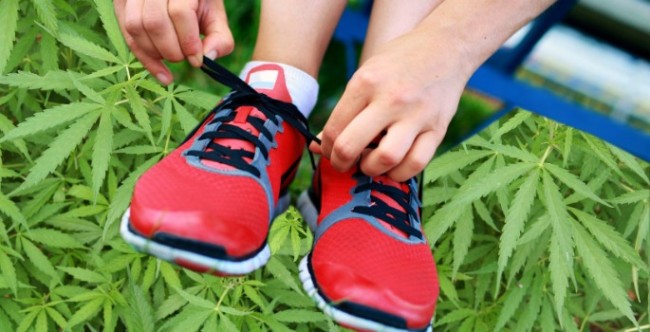Cannabis has gained widespread popularity for its potential medicinal and recreational benefits. On the other hand, exercise is widely recognized for promoting overall health and well-being. With the increasing acceptance of cannabis use, many fitness enthusiasts wonder whether it can enhance or hinder their workouts. Can cannabis and exercise coexist harmoniously? This comprehensive guide explores the relationship between cannabis and physical activity, examining the potential benefits, risks, and practical considerations.
Table of Contents
ToggleCannabis contains numerous compounds, the most notable being cannabinoids like THC (tetrahydrocannabinol) and CBD (cannabidiol). THC is responsible for the psychoactive effects, while CBD is known for its therapeutic properties without the high.

While research on the direct effects of cannabis on exercise is still evolving, several potential benefits are worth considering.
CBD has been found to possess anti-inflammatory properties that may aid muscle recovery after intense workouts. Athletes dealing with chronic pain or injuries may find relief through cannabis-based products.
Some users report that low doses of THC can help with focus and motivation during exercise, particularly for monotonous activities like running or cycling.
Exercise is known to alleviate stress, and cannabis, particularly CBD, may further enhance relaxation and reduce exercise-induced anxiety.
Quality sleep is essential for muscle recovery and performance. Cannabis, especially strains high in CBD, may promote better sleep patterns.
Risks and Considerations
Despite the potential benefits, combining cannabis and exercise is not without its risks. Understanding these can help users make informed decisions.
THC can impair motor skills, coordination, and reaction time, which can increase the risk of injuries during workouts.
Cannabis consumption, especially THC-dominant strains, can elevate heart rate, potentially putting stress on the cardiovascular system during intense exercise.
Cannabis can cause dry mouth and dehydration, which can be problematic during prolonged physical activity.
Frequent use of cannabis as a pre-workout supplement may lead to psychological dependence and hinder natural motivation over time.
If you are considering integrating cannabis into your fitness routine, follow these best practices to maximize benefits while minimizing risks.
Start with a low dose and gradually increase it to assess tolerance and impact on exercise performance.
Consider consuming cannabis 30-60 minutes before exercise to allow its effects to take place. Alternatively, use it post-workout for recovery purposes.
Stay hydrated and maintain a balanced diet to counteract any dehydration or nutrient depletion caused by cannabis use.
Pay attention to how your body reacts to cannabis and adjust usage accordingly to avoid negative effects.
Cannabis and exercise can potentially complement each other if used responsibly and with consideration for individual tolerance and goals. Whether you’re looking for pain relief, improved focus, or relaxation, understanding the benefits and risks is key to making informed decisions. Always consult a healthcare professional before incorporating cannabis into your fitness routine to ensure it aligns with your health objectives.
Looking for a convenient way to enhance your workout experience? Try our weed delivery in Toronto and explore a range of high-quality cannabis products tailored for your fitness needs!

MAIL ORDER MARIJUANA
Same day shipping
Open: 24 hours
Min Order: $100
Delivery Fee: $20
Free Delivery: $150+
QUEBEC
NEW BRUNSWICK
ALBERTA
BRITISH COLUMBIA
MANITOBA
NEWFOUNDLAND
NOVA SCOTIA
SASKATCHEWAN
PRINCE EDWARD

SAME-DAY WEED DELIVERY
2Hrs delivery time in the GTA
Open: 10AM – 1AM
Min Order: $50
Delivery Fee: $10
Free Delivery: $70+